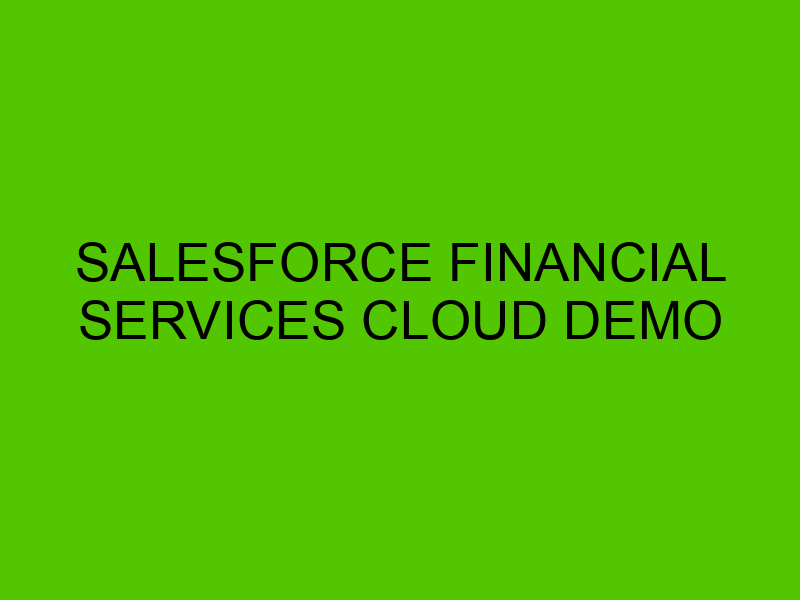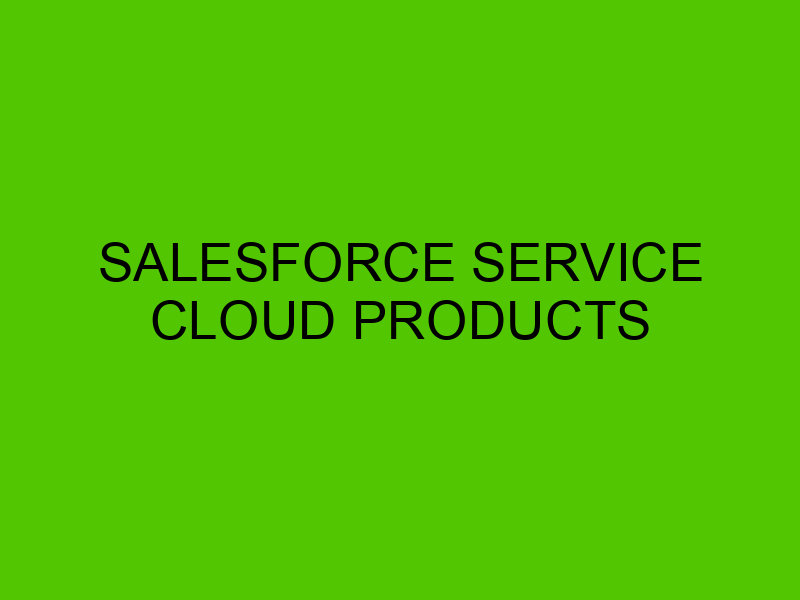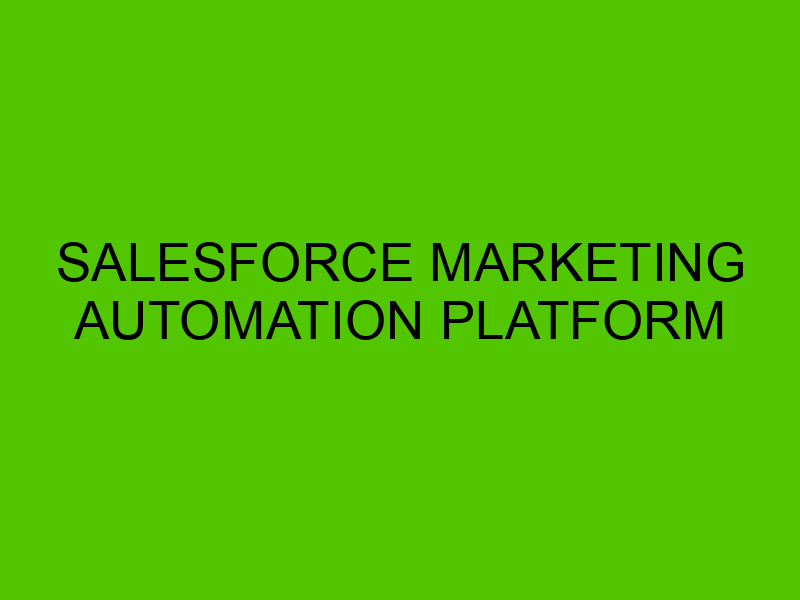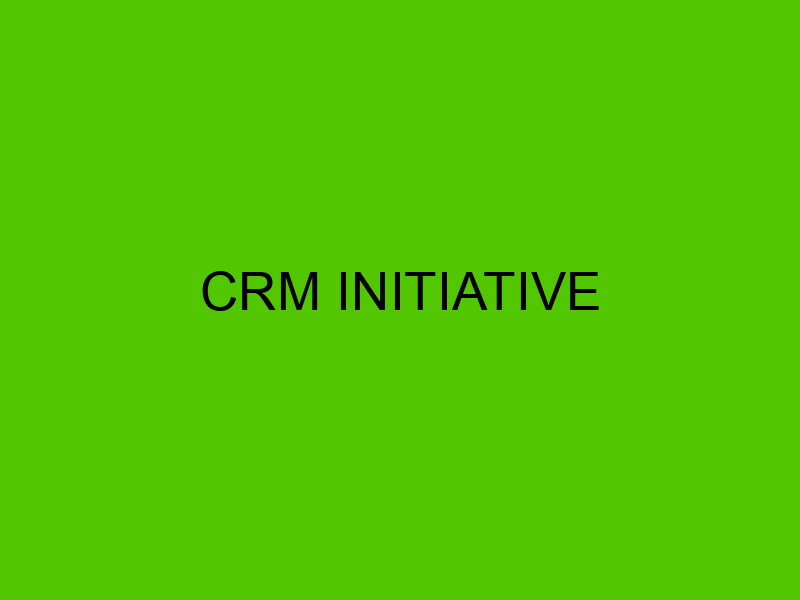salesforce sales cloud capabilities
Salesforce Sales Cloud: Unleashing the Power of CRM Capabilities
1. Lead Management Capabilities
Salesforce Sales Cloud offers exceptional lead management capabilities that help businesses streamline the sales process and manage potential customers more effectively. The platform provides a comprehensive view of all leads, allowing businesses to easily track their progress from initial contact to final conversion, and beyond. This is particularly useful for businesses with large sales teams who need to collaborate efficiently, as everyone can access the same information from the same place.
One of the key features of Salesforce Sales Cloud is its lead scoring functionality. This allows businesses to prioritize leads based on their likelihood of converting. The lead scoring engine determines a score based on various factors, including the lead’s level of engagement with the business, their demographic information, and their behavior on the website. This means that sales teams can focus their efforts on the leads that are most likely to convert and avoid wasting time on less promising prospects.
Another important feature of Salesforce Sales Cloud’s lead management capabilities is its lead assignment functionality. This allows businesses to automatically assign leads to specific sales reps based on predefined criteria such as location, industry, or product interest. This ensures that leads are distributed fairly and efficiently, and that no potential customers slip through the cracks.
Salesforce Sales Cloud also allows for the creation of custom lead nurturing campaigns, which can be tailored to specific lead segments based on their interests or behavior. This helps to build relationships with potential customers and keep them engaged with the business, ultimately increasing the chances of conversion.
Overall, the lead management capabilities of Salesforce Sales Cloud provide businesses with the tools they need to manage potential customers effectively and efficiently, allowing them to focus on closing deals and growing their customer base.
Sales Automation
The sales process can be a tedious and time-consuming task, but with Salesforce Sales Cloud, businesses can automate their sales processes and streamline their workflow, saving time and increasing productivity. Sales automation is a key feature of Salesforce Sales Cloud, allowing businesses to automate a wide range of tasks, from lead generation to deal closure.
One of the primary benefits of sales automation is that it helps businesses to be more efficient. By automating repetitive or time-consuming tasks such as data entry or lead follow-up, sales reps can focus on more important tasks, such as developing relationships with customers or closing deals. This can help to increase sales productivity and ultimately, revenue.
Sales automation allows businesses to create customized workflows that automate specific tasks or entire sales processes. For example, when a new lead is entered into the system, a workflow can be triggered to send an automated email to the lead with relevant information or to assign the lead to a sales rep for follow-up. When a deal is won, a workflow can be triggered to move the deal to the next stage and send an automated notification to the sales rep or manager.
Sales automation also helps businesses to improve their sales forecasting. By automating the tracking of sales activities and customer interactions, sales managers can get real-time insights into the sales pipeline and make more informed decisions about resource allocation or sales strategies. This can help to improve forecasting accuracy and increase sales performance.
Salesforce Sales Cloud also offers a range of intuitive automation tools that make it easy to automate sales processes. For example, businesses can create rules to automatically assign leads to specific sales reps based on predefined criteria such as region or product interest. Workflow rules can also be created to automatically update fields or records based on specific events or actions, such as changing the status of a deal or sending a follow-up email.
Overall, sales automation is a powerful tool for businesses looking to streamline their sales processes, increase productivity, and ultimately drive more revenue. With Salesforce Sales Cloud, businesses can take advantage of customizable workflows and intuitive automation tools to automate their sales processes and gain a competitive edge in today’s market.
Sales Forecasting and Analytics
Salesforce Sales Cloud is an integral tool for businesses looking to gain an edge in their sales activities. Its robust capabilities in sales forecasting and analytics provide businesses with knowledge and insights about their business operations that they would not have had without it. Let’s take a deeper look at these abilities.
1. Real-Time Analytics
One of the critical features of Salesforce Sales Cloud is its ability to provide real-time analytics. This allows businesses to keep track of various sales activities as they happen, enabling them to adjust their tactics accordingly. With this real-time data, businesses can identify where prospects are in the sales pipeline, helping the sales team to strategize better and close deals faster.
Businesses can view real-time reports on their sales performance through Salesforce Sales Cloud in a wide variety of formats, including tables, charts, and graphs. These reports are dynamic and can update in real-time, displaying information like deal size, trending opportunities, and sales funnel data. With these insights, businesses can make data-driven decisions as they evolve their marketing and sales strategies.
2. Sales Forecasting
Salesforce Sales Cloud provides businesses with the ability to forecast future sales. The sales forecasting features of the tool are based on the real-time analytics it provides, and they help businesses project their future sales based on historical data and trends. The forecasting is an essential tool that helps businesses make better decisions regarding their marketing and sales strategies in the future.
Salesforce Sales Cloud also provides businesses with customizable sales forecasting models to adapt to specific business models and industries. These models help businesses forecast future sales by using historical data, current opportunities, and pipeline data. It is an essential planning tool for businesses that want to make informed and data-driven decisions about their future sales trajectory.
3. Identifying Top Performing Sales Reps
Salesforce Sales Cloud features provide businesses with insights into the performance of their sales reps. It enables managers to identify who their top-performing sales reps are and provide them with additional support to achieve even better results.
The sales tracking features of Salesforce Sales Cloud enable businesses to track the activities of their sales reps daily. It provides insight into their activities, including call volumes, emails, meetings, demos, and more. Managers can take advantage of these tools to understand the sales process, identify areas for improvement, and motivate and coach their sales reps to perform even better.
Salesforce Sales Cloud is a valuable tool that enables businesses to achieve success through its vast array of capabilities. From real-time analytics to sales forecasting and supporting sales reps, this tool is a must-have for businesses looking to streamline their sales operations and drive revenue growth.
Mobile Access
One of the main advantages of the Salesforce Sales Cloud is its ability to provide mobile access to sales representatives. This means that they can access important customer information and perform tasks on-the-go, without the need to be tethered to their desktop computer.
The Sales Cloud mobile app is easy to use, providing a simple and intuitive user interface that enables sales reps to quickly access customer data, create leads, opportunities, and much more. The app is available to download for free, and is compatible with both iOS and Android devices, so sales reps can use it no matter what hardware they have.
The mobile app allows sales reps to easily capture leads while they are out in the field. With the app’s location-based features, sales reps can easily find potential customers nearby, and capture their contact information using the app’s powerful lead capture forms. The app also allows sales reps to quickly update lead information, so they can keep their sales funnel up-to-date and stay on top of their leads.
One of the most powerful features of the Sales Cloud mobile app is its ability to manage deals on-the-go. Sales reps can easily create new opportunities, track the status of existing opportunities, and update the details of deals, all from their mobile devices. This allows them to stay on top of their pipeline, no matter where they are or what they are doing.
Additionally, the Sales Cloud mobile app allows sales representatives to stay connected with their customers, no matter where they are. With the app’s integrated social features, sales reps can quickly connect with customers on social media platforms such as Twitter, LinkedIn, and Facebook. This enables them to stay up-to-date on customer activities, interests, and pain points, and respond quickly and effectively to customer needs.
Overall, the Salesforce Sales Cloud’s mobile capabilities are a game-changer for sales reps who need to work on-the-go. The app provides an easy-to-use, intuitive interface that enables sales reps to access customer data, capture leads, manage deals, and stay connected with customers, all from their mobile devices. With the Sales Cloud mobile app, sales reps can work more efficiently, close more deals, and grow their business.
Marketing Integration
Salesforce Sales Cloud is a powerful tool that enables organizations to manage their sales process from lead generation to close. However, managing the entire customer journey involves more than just the sales process. To address this, Salesforce Sales Cloud has the capability to integrate with marketing automation tools, such as Pardot and Marketing Cloud.
Integrating Salesforce Sales Cloud with marketing automation tools allows businesses to gain a comprehensive view of their customers and manage the entire customer journey from a single platform. With Pardot, for example, sales teams can leverage marketing automation to send personalized emails, nurture leads, and prioritize engagement. The leads that are warmed up and ready for sales take over can be automatically pushed into the Salesforce Sales Cloud, allowing salespeople to focus their efforts on high-quality leads.
Furthermore, Salesforce Sales Cloud provides marketing teams with insights into the leads they generate. Pardot tracks and scores the quality of leads generated from marketing campaigns, providing crucial information to the marketing team regarding which campaigns are performing well and which ones need improvements. Also, by knowing which campaigns are resonating with customers, sales teams can tailor their message and approach accordingly, leading to higher conversion rates.
Marketing automation tools also allow businesses to deliver personalized and relevant content to customers. For instance, Marketing Cloud enables businesses to create and launch email campaigns, social media ads, mobile push notifications, and more, all from a single platform. The tool assists in building engaging and targeted content for customers and ensures that this content is displayed on the appropriate platform at the right time. By using these personalized campaigns, businesses can build stronger relationships with their customers and generate more qualified leads.
Additionally, the integration between Salesforce Sales Cloud and marketing tools provides businesses with a greater insight into each individual customer, regardless of the channel through which they interact with the company. This allows companies to craft a more personalized experience for customers.
Finally, by using more sophisticated targeting options, Salesforce Sales Cloud and marketing automation tools let businesses deliver content to customers in a way that aligns with their preferences, which enhances brand loyalty and encourages customer retention. Pardot’s lead nurturing tools allow businesses to engage with their customers on a one-to-one basis, providing insight into their interests, behaviors, and preferences, which further helps businesses to craft targeted marketing campaigns.
Conclusion
Salesforce Sales Cloud’s integration with marketing automation tools is a game-changer for businesses. It enables businesses to streamline the sales cycle, personalize the customer journey, and deliver greater insights into each customer’s behavior and preferences. By understanding the customer journey and delivering a more personal touch, businesses can build stronger relationships with their customers, which ultimately results in increased conversion rates and higher revenue opportunities.
Sales Collaboration
Salesforce Sales Cloud is a robust tool that offers advanced features to foster collaboration and communication between sales teams. This software provides an array of outstanding features which play a pivotal role in enhancing sales reps’ productivity, enabling them to close deals faster and more effectively. One of the most striking capabilities of the Sales Cloud is its seamless collaboration features. These features enable sales organizations to work collaboratively and streamline the sales process.
Real-time communication is the first feature at our fingertips when it comes to collaboration on the Sales Cloud. Using this feature, team members can communicate with one another instantly, no matter where they are in the world. Sales reps can hold virtual meetings via video conferencing, chat instantly on the platform, or share screens for greater clarity and ease of communication. This opens up avenues of communication and encourages collaboration among team members like never before. Real-time communication ensures that everyone stays on the same page, eliminating any gaps in communication that might hinder the sales process.
File sharing is another essential feature of collaboration capabilities within the Sales Cloud. Sales teams can upload files such as sales sheets, presentations, and marketing collateral for immediate access by team members. This file sharing feature is intuitive and user-friendly, allowing every team member to align with each other quickly, thus advancing the sales effort more efficiently. This is particularly useful for virtual teams, where sales reps may be based in different geographical locations or have different time zones.
The Task Assignments feature of the Sales Cloud is an excellent way to manage a sales team’s to-do list. It simplifies how sales reps receive and manage assignments, as well as how managers can review and provide feedback on completed work. Task assignments streamline the sales process while helping sales managers monitor and track each team member’s performance. With this feature, sales reps can assign and manage tasks, set deadlines, and track progress seamlessly, ensuring that everyone stays focused and aligned on the tasks that must be completed to meet sales objectives.
The Sales Cloud also provides a team-based approach to lead management, which is essential for sales success. With this feature, sales reps can work as a team to streamline the lead assignment process, ensure that reps are working on the best possible leads, and minimize redundancy or overlapping sales activities.
The Engage Module is another powerful feature that enables sales teams to work together to create personalized campaigns for prospects. Engage is a tool within the Sales Cloud that provides a platform for sales reps to create customize email templates and share them with others on the team. Sales reps can also use customer data to create personalized messages and track customer engagement and response rates. In this way, Sales Cloud provides an avenue for sales organizations to create more targeted campaigns and boost customer engagement.
In conclusion, the Salesforce Sales Cloud provides exceptional sales collaboration and communication capabilities that make teamwork easier among sales professionals. Real-time communication, file-sharing, task assignments, lead management, and the Engage Module are just a few of the useful features that make it possible for sales organizations to work collaboratively and meet sales targets. These features make it simple for sales reps to communicate better with each other, share pertinent information, assign and manage tasks efficiently, and streamline the sales process overall.
AI-powered Insights
The power of Salesforce Sales Cloud lies in its use of Einstein, Salesforce’s proprietary AI technology that provides valuable insights into an organization’s data. Salesforce Einstein is built into Sales Cloud, leveraging machine learning, natural language processing, and predictive analytics to offer unparalleled visibility into an organization’s customer interactions.
Through Einstein, Sales Cloud users gain AI-powered insights that help them understand customer behavior, prioritize leads, and forecast sales performance with unparalleled accuracy. With these insights, organizations can make data-driven decisions that better align their sales efforts with customer needs and preferences.
Salesforce Einstein’s predictive capabilities start by examining the past behavior of customers to identify patterns and trends. The AI technology then looks for correlations between various data points to anticipate how customers will behave in the future. This gives Sales Cloud users unparalleled insight into the likely outcomes of various sales and marketing strategies and helps them allocate resources more effectively.
One of the key applications of Einstein in Sales Cloud is its ability to automate routine tasks, freeing up sales teams to focus on building relationships with customers. With Einstein’s automation capabilities, Sales Cloud users can streamline everything from lead qualification to contract approval, leaving sales reps with more time to develop personalized, meaningful interactions with their clients.
Einstein can also anticipate customer needs by analyzing their behavior and preferences. Armed with this knowledge, sales reps can tailor their interactions with customers based on their individual preferences and history. This ensures a more personalized experience, builds stronger customer loyalty, and boosts sales performance.
Another key benefit of Einstein is the way it integrates with other Salesforce products, providing seamless data flows and more comprehensive insights. For instance, organizations that use Sales Cloud in conjunction with Marketing Cloud can access a 360-degree view of their customers, with Einstein delivering groundbreaking insights that reveal the connections between marketing campaigns and customer behavior.
In conclusion, AI-powered insights are a crucial part of what makes Salesforce Sales Cloud so powerful. Through Einstein, sales reps can gain unparalleled visibility into customer behavior, automate routine tasks, anticipate customer needs, and make more informed, data-driven decisions. By providing powerful AI technology to drive sales growth, Sales Cloud has established itself as the ultimate sales tool for organizations looking to boost their sales revenues and enhance customer engagement.










